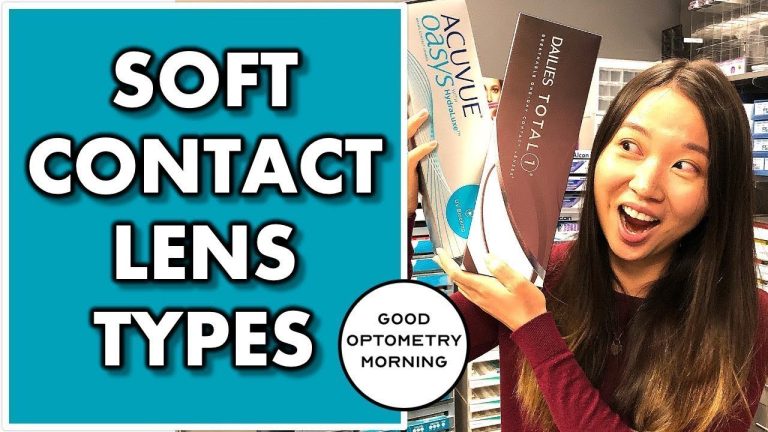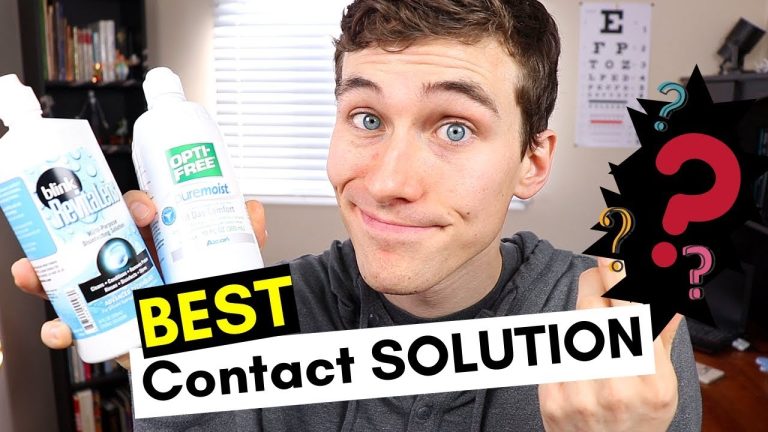The Essential Guide to Contact Lens Solutions for University Students: Optimize Your Vision Care Routine with Our Expert Tips
In today’s digital era, students juggle hectic schedules and spend long hours staring at their electronic devices, which could lead to eye strain and discomfort. Contact lenses have become a common sight among university students, as they offer numerous benefits and convenience compared to traditional eyeglasses. However, to maintain healthy and clear vision, proper care of the lenses and the right contact lens solutions are crucial.
Having a clean and safe lens solution is imperative to ensure the longevity of contact lenses and your eye health. With many contact lens solutions available in the market, choosing the right one could be a daunting task. In this blog post, we’ll take a closer look at the different types of contact lens solutions, their benefits, and factors to consider when selecting the best one for you.
Types of Contact Lens Solutions:
Before diving into the different types of contact lens solutions, it’s fundamental to understand that solutions are primarily divided into two categories, Chemical and Hydrogen peroxide.
Chemical Solutions:
Chemical solutions, also known as multipurpose solutions, have the ability to clean, disinfect and store contact lenses. They contain preservatives that kill bacteria and other microorganisms present on lenses. Some popular chemical solutions include:
- Bio True: An all-in-one multipurpose solution that matches the pH level of natural tears, ensuring comfortable wear for up to 20 hours.
- Opti-Free Pure Moist: A gentle solution that eliminates bacteria and reduces protein build-up, providing a comfortable experience for people with sensitive eyes.
- ReNu: A reliable solution that cleans, disinfects, and removes proteins, preventing the accumulation of dirt, debris, and germs on lenses.
Hydrogen Peroxide Solutions:
Hydrogen peroxide solutions, unlike chemical solutions, require a separate neutralizing step before placing lens back to eyes. These solutions use hydrogen peroxide to disinfect lenses, and neutralizing agents lock away any remaining peroxide after a duration of 6 hours. Since the solution is alcohol-free, it is ideal for people who are allergic to preservatives. Some popular hydrogen peroxide solutions include:
- Clear Care: A unique solution that utilizes hydrogen peroxide and a special disc-shaped case to clean and disinfect lenses for optimal performance.
- AOSept: Another hydrogen peroxide-based solution that promises to eliminate harmful bacteria and provide exceptional cleaning features, delivering higher wearing comfort.
- Peroxide Express: A faster-performing solution that uses hydrogen peroxide to clean and disinfect lenses in only 2 hours.
Factors to Consider When Choosing Contact Lens Solutions:
Some essential factors to consider when choosing a contact lens solution include:
- Eye Sensitivity: If you have sensitive eyes, you may consider a preservative-free solution, such as AOSept and Hydrogen Peroxide Express, as they do not contain harmful preservatives.
- Lifestyle: Students who have a busy schedule may consider all-in-one solutions as they are more comfortable and convenient.
- Cost: Hydrogen peroxide solutions are often more expensive than chemical solutions, as they require additional components for the neutralizing process.
In conclusion, contact lenses can be a beneficial alternative to eyeglasses. To maintain healthy and clear vision, choosing the best contact lens care solution is crucial. We hope that this blog post has helped you to understand the different types of contact lens solutions, their features, and factors to consider before selecting one. Take your time, do your research, and consult your eye doctor before choosing a solution. Happy studying!
Contents
Most wanted in Hoya Vision:
Hoya Lens Engravings
What brand lenses does Costco use?
Which lens is better Alcon or Johnson and Johnson?
Why do my glasses lenses scratch so easily?
Visionworks Digital Progressive Lenses
Ultraxhd Lenses
What’s the rarest eye color?
Hoya Sensity Vs Transitions Xtractive
Should eyeglasses cover eyebrows?
Workspace Lenses
















